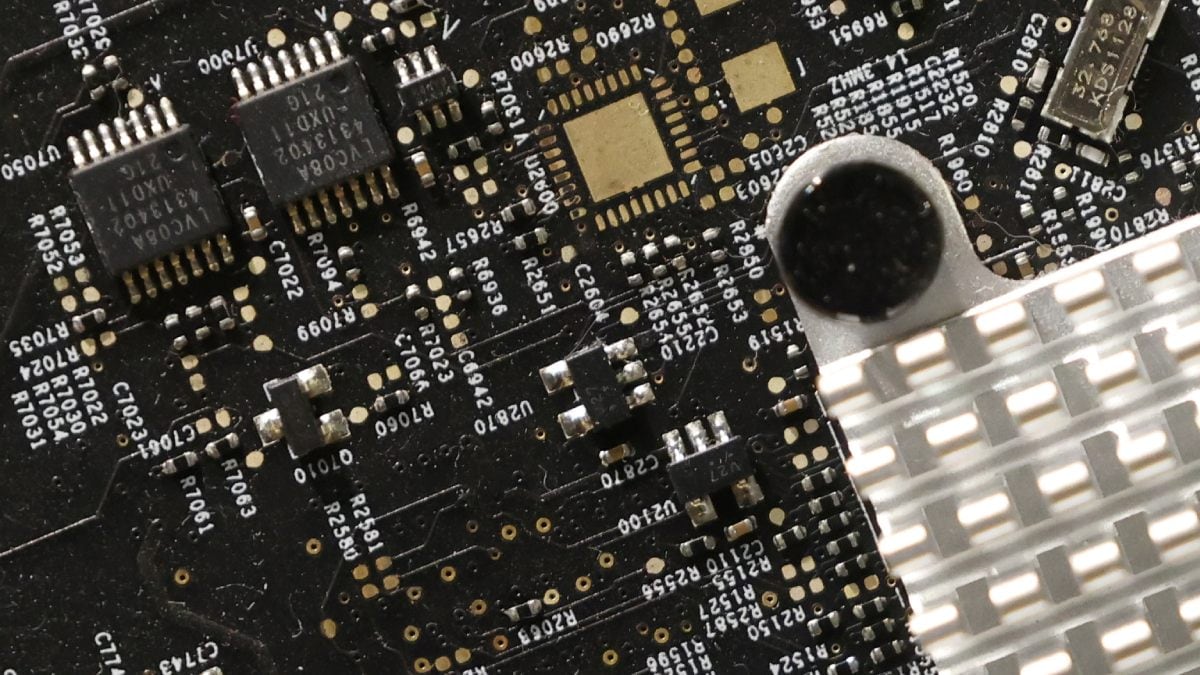Biden administration officers have mentioned capping gross sales of superior AI chips from Nvidia and different American firms on a country-specific foundation, individuals conversant in the matter stated, a transfer that may restrict some nations’ Synthetic Intelligence (AI) capabilities.
The brand new method would set a ceiling on export licenses for sure nations within the curiosity of nationwide safety, in response to the individuals, who described the personal discussions on situation of anonymity. Officers are targeted on Persian Gulf nations which have a rising urge for food for AI knowledge facilities and the deep pockets to fund them, the individuals stated.
Deliberations are in early levels and stay fluid, the individuals stated, noting that the concept has gained traction in current weeks. The coverage would construct on a brand new framework to ease the licensing course of for AI chip shipments to knowledge facilities in locations just like the United Arab Emirates and Saudi Arabia. Commerce Division officers unveiled these laws final month and stated there are extra guidelines coming.
The company’s Bureau of Business and Safety, which oversees export controls, declined to remark. Nvidia, the market chief for AI chips, additionally declined to remark, as did Superior Micro Gadgets. A consultant for Intel, which additionally makes such processors, did not reply to a request for remark.
A spokesperson for the White Home Nationwide Safety Council declined to touch upon the talks however pointed to a current joint assertion by the US and UAE on synthetic intelligence. In it, the 2 nations acknowledged the “super potential of AI for good,” in addition to the “challenges and dangers of this rising expertise and the very important significance of safeguards.”
Setting country-based caps would tighten restrictions that initially focused China’s ambitions in Synthetic Intelligence (AI), as Washington considers the safety dangers of AI growth around the globe. Already, the Biden administration has restricted AI chip shipments by firms like Nvidia and AMD to greater than 40 nations throughout the Center East, Africa and Asia over fears their merchandise may very well be diverted to China.
On the identical time, some US officers have come to view semiconductor export licenses, notably for Nvidia chips, as a degree of leverage to realize broader diplomatic targets. That would embody asking key firms to cut back ties with China to realize entry to US expertise — however the issues prolong past Beijing.
“We should have a dialog with nations around the globe about how they plan to make use of these capabilities,” Tarun Chhabra, senior director of expertise on the Nationwide Safety Council, stated at a discussion board in June with out naming particular nations. “In case you’re speaking about nations which have a very sturdy inner surveillance equipment, then we’ve got to consider: How precisely will they use these capabilities to supercharge that form of surveillance, and what is going to that appear to be?”
There’s additionally the query of how international AI growth might have an effect on American intelligence operations, stated Maher Bitar, one other NSC official. “What are the dangers not simply on human rights grounds, but in addition when it comes to the safety and the counterintelligence dangers to our personnel around the globe?” Bitar stated on the identical occasion.
It is unclear how main AI chipmakers would react to further US restrictions. When the Biden administration first issued sweeping chip laws for China, Nvidia redesigned its AI choices to make sure it will probably preserve promoting into that market.
If the administration strikes ahead with country-based caps, it could show tough to ship a complete new coverage within the remaining months of President Joe Biden’s time period. Such guidelines may very well be difficult to implement and can be a significant take a look at of US diplomatic relationships.
Governments around the globe are in a quest for so-called sovereign AI — the flexibility to construct and run their very own AI techniques — and that pursuit has turn out to be a key driver of demand for superior processors, in response to Nvidia Chief Govt Officer Jensen Huang. Nvidia’s chips are the gold commonplace for data-center operators, making the corporate the world’s most beneficial chipmaker and the highest beneficiary of the AI increase.
China, in the meantime, is working to develop its personal superior semiconductors, although they nonetheless path the very best American chips. Nonetheless, there’s concern amongst US officers that if Huawei Applied sciences Co. or one other overseas maker at some point provides a viable various to Nvidia chips — presumably with fewer strings connected — that would weaken the US means to form the worldwide AI panorama.
Some US officers argue that is solely a distant risk, and that the Washington ought to undertake a extra restrictive method to international AI chip exports given its present negotiating place. Others warn towards making it too tough for different nations to purchase American expertise, within the occasion China positive factors floor and captures these clients.
Whereas officers have debated the very best method, they’ve slowed high-volume AI chip license approvals to the Center East and elsewhere. However there are indicators issues might get transferring quickly: Beneath the brand new guidelines for shipments to knowledge facilities, US officers will vet and preapprove particular clients primarily based on safety commitments from each the businesses and their nationwide governments, paving the best way for simpler licensing down the highway.
© 2024 Bloomberg LP

